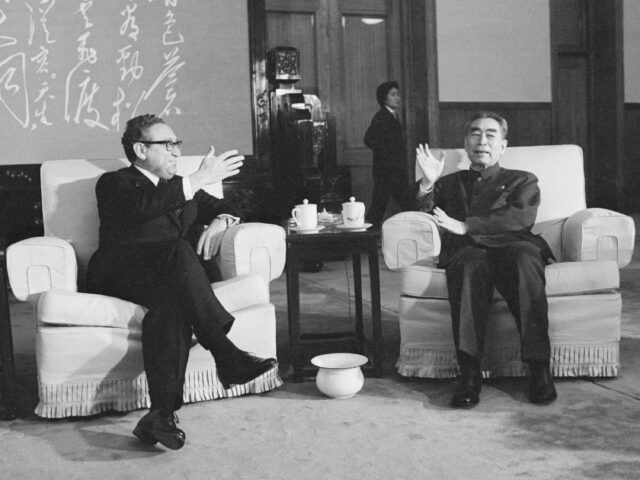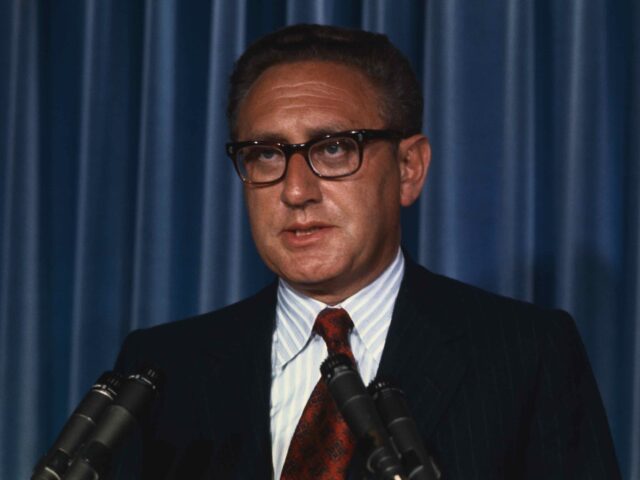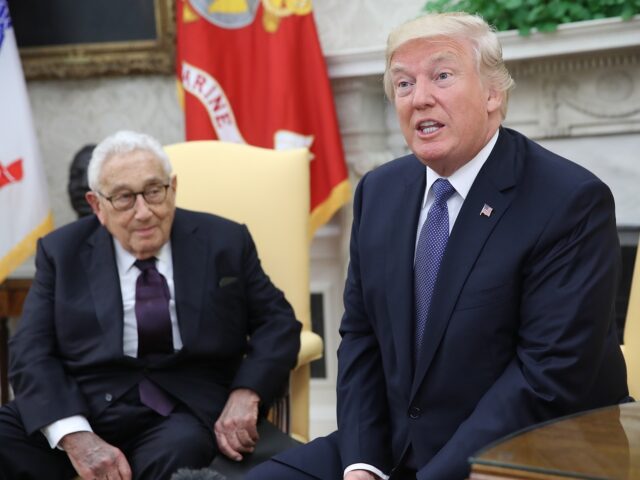Henry Alfred Kissinger died on Wednesday, November 29, at the age of 100, leaving behind a diplomatic legacy that is America’s answer to Klemens von Metternich, the conservative statesman who restored a balance of power to Europe in the aftermath of the upheavals caused by Napoleon.
Kissinger was a conservative internationalist, one who favored engagement over neutrality, but who prioritized American interests in doing so, and sought to create stability that would ultimately work to America’s advantage.
Kissinger’s great achievement was to split communist China from the Soviet Union. He engineered a thaw in relations that saw President Richard M. Nixon, who had built his political career as a tough anti-communist, visit China in 1972.

Henry Kissinger and Zhoi Enlai relax on large chairs at a reception given in the Great Hall of the People, after Kissinger’s successful shuttle diplomacy in the Middle East brokered a truce.
Though one of his successors, Secretary of State Mike Pompeo, later declared that the policy of engaging China had been a failure, the fact was that it isolated the USSR and weakened it, helping to precipitate the collapse of the Soviet Union and its satellites two decades later.
At the same time, Kissinger was reviled by the left for his role in expanding the Vietnam War to Cambodia, and for backing right-wing dictatorships and militias around the world as a counterweight to Soviet rebels and regimes. Critic Christopher Hitchens, later a supporter of the Iraq War, imagined trying Kissinger for war crimes.
Whether admired or loathed, Kissinger was a symbol of American realpolitik, to borrow a term Otto von Bismarck, the 19th century statesman who built Kissinger’s native Germany.

White House advisor Henry A. Kissinger (left) tells newsmen at the White House 10/27 that President Nixon will journey to Peking early next year and provide “an opportunity to make a new beginning” in relations with mainland China. At right is Nixon’s press secretary, Ron Ziegler.
Born Heinz Alfred Kissinger to a Jewish family in Fürth, Kissinger came to the U.S. as a teenage refugee from the Nazis in 1938. He would return to Germany in an American uniform, working as an interpreter for the U.S. Army.
When he returned to the U.S., he studied at Harvard: his 400-page undergraduate thesis on history and politics remains a legendary achievement. He became a widely respected scholar in the emerging field of international affairs before being tapped as an adviser to the U.S. government.
In 1968, Nixon named Kissinger as National Security Advisor. He retained that title, unusually, when Nixon appointed him as Secretary of state in 1973.
Almost immediately, Kissinger faced his first major crisis in the Yom Kippur War, when Egypt and Syria launched a surprise attack on Israel on October 6, 1973. While Nixon made sure that Israel had the ammunition to fight, Kissinger sought to restrain Israeli victory so as not to upset the balance of power and his effort at détènte with the Soviet Union.
Continue reading: Breitbart.com





Leave a Reply